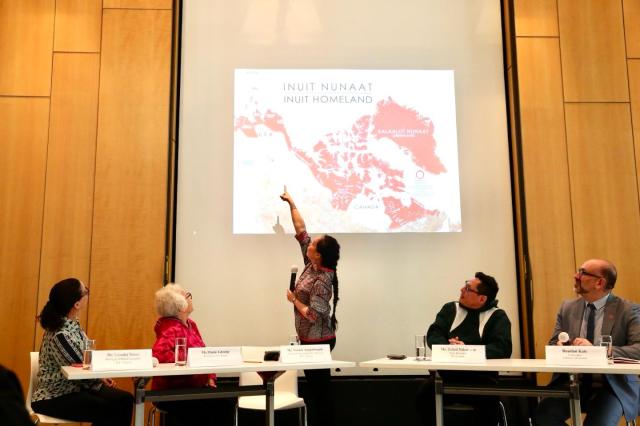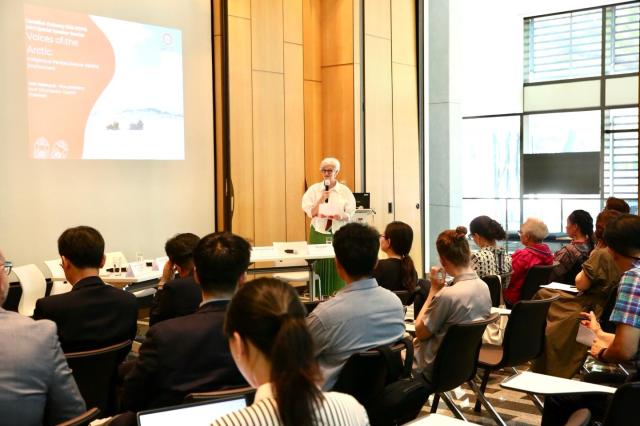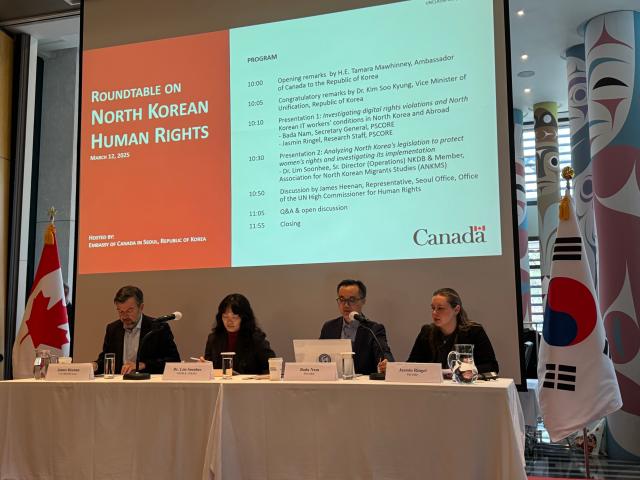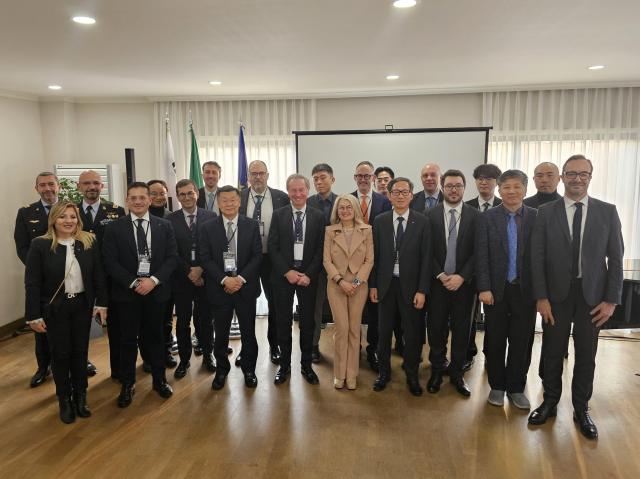
The event, held in collaboration with the Korea Polar Research Institute and the Korea Maritime Institute, brought together environmentalists and other experts to discuss conservation efforts for the Arctic marine environment.
Among the participants were visiting Inuit delegates, indigenous to the Arctic, who came to Seoul to attend the annual gathering of the Central Arctic Ocean Fisheries Agreement (CAOFA) in Incheon earlier in the week.
Canadian Ambassador Tamara Mawhinney opened the event with a congratulatory address, emphasizing collaborative efforts. "Canada, Korea, and the Arctic indigenous communities hope to address issues such as climate change, plastic pollution, and unsustainable fishing practices together to better protect the Arctic marine environment through the invaluable experiences and knowledge of indigenous peoples," she said.

"We have traditionally viewed the Arctic as a region mainly for scientific research or a source of natural resources. However, it is crucial to cooperate with indigenous communities who have lived there for a long time," said Shin Hyung-chul at the Korea Polar Research Institute. "We need to focus on how to prepare for the future together. Cooperation with them is becoming more prominent," he stressed.
"The Arctic may look unrelated to Korea, but it is, in fact, very important for us to give attention to it. We believe that we have a responsibility to create a better future for the next generations. With this future-oriented prospective, we are conducting various scientific research projects that benefit the Arctic communities. Collectively finding solutions is the key to these efforts," he further explained.
Herbert Nakimayak, Vice President of non-profit organization ICC Canada, delivered a keynote speech on the protection and management of coastal areas in the Arctic Ocean, emphasizing international cooperation from the indigenous people's perspective.
During the following roundtable session, participants shared thoughts about the impact of the Arctic Ocean's changing environment on the well-being and food security of the Arctic indigenous peoples. They also discussed solutions on how to harmonize scientific research with indigenous knowledge for the sustainable management of the Arctic marine environment.
"Climate change is not a problem for a certain country. In today’s increasingly interconnected world, the Arctic is no longer a distant place. If people try to extend their understanding of the Arctic, they will gain valuable insights for the planet's future," said Kim Jong-duk, president of the Korea Maritime Institute.
Copyright ⓒ Aju Press All rights reserved.





View more comments